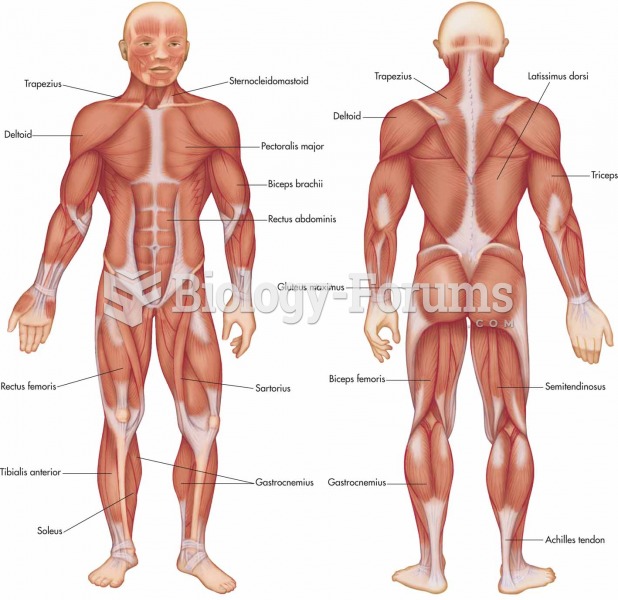|
|
|
It is difficult to obtain enough calcium without consuming milk or other dairy foods.
The first oral chemotherapy drug for colon cancer was approved by FDA in 2001.
Lower drug doses for elderly patients should be used first, with titrations of the dose as tolerated to prevent unwanted drug-related pharmacodynamic effects.
Over time, chronic hepatitis B virus and hepatitis C virus infections can progress to advanced liver disease, liver failure, and hepatocellular carcinoma. Unlike other forms, more than 80% of hepatitis C infections become chronic and lead to liver disease. When combined with hepatitis B, hepatitis C now accounts for 75% percent of all cases of liver disease around the world. Liver failure caused by hepatitis C is now leading cause of liver transplants in the United States.
The B-complex vitamins and vitamin C are not stored in the body and must be replaced each day.







